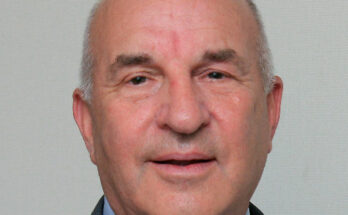The company today announced the appointment of Geeta Nayyar, MD, MBA, a bestselling author, technologist, and globally recognized leader, as the first Chief Medical Officer of RadiantGraph, the healthcare personalization platform that uses artificial intelligence and machine learning to drive consumer engagement for health plans and healthcare service organizations. Additionally, Kirk Goodman, a business development strategist and Wheel and BCG alum, has been appointed Senior Vice President of Commercial. Together, they will hasten RadiantGraph’s goal of being the industry leader in customer engagement by providing the kind of individualized, patient-focused communications that are essential in today’s technologically advanced world.
The adoption of technology in healthcare is being driven by consumers. Patients are keen to take advantage of advancements and have been more involved in their own healthcare since the outbreak. But with so many disjointed information sources, it’s imperative to provide patients with the information they need, wherever they are. These days, patients have higher expectations of their healthcare professionals, just as they do of retailers. Keeping customers informed and making sure they take the right steps to maintain their health requires providing them with individualized information. To boost efficiency and improve the patient experience, healthcare providers must take the lead and prioritize digital care.
There have never been more tangible or practical opportunities for healthcare technology advancement. According to Dr. G, artificial intelligence (AI) has the potential to significantly improve consumer health, but any new technology must be developed intentionally and used to benefit society. He observed in RadiantGraph the deliberate creation of a sophisticated artificial intelligence that managed to humanize technology, promising to improve a healthcare system that is lagging behind in terms of customer engagement and interaction.
Dr. G has personally witnessed the gap in patient education and healthcare delivery. She has been a proponent of healthcare personalization and has dedicated a significant portion of the last five years to finding a practical means of enhancing customer interaction.
By applying specialized AI and machine learning (ML) to transform healthcare data into customized, useful consumer healthcare experiences, RadiantGraph personalizes healthcare. This makes it possible for healthcare organizations to address clinical demands, draw in and involve patients, and promote individualized treatment. Through the provision of a tool that enables scalable personalization—something that is typically not possible without a significant capital investment, engineering development and training, and expanding staff to manage the system—AI has the potential to not only improve patient engagement but also significantly alleviate a significant burden from these healthcare organizations.
While there is currently a chance for AI to have a significant impact on healthcare, more than 80% of the labor is done outside of the models. According to Kirk Goodman, he recognized RadiantGraph’s in-depth knowledge of AI models and healthcare as a means of providing clients with scalable and verified platform solutions. “Healthcare firms are searching for innovative solutions like RadiantGraph to overcome this difficulty as they seek to incorporate tools to improve their relationship with consumers. Our clients can now use AI at a far faster pace and experience the benefits of personalization in weeks rather than years. I’m excited to become a part of the team and contribute to making our clients’ and the industry’s potential influence a reality.
RadiantGraph is easily integrated by healthcare businesses into their marketing and product offerings, and it may be used to find new patterns that increase conversion rates. After just a few months of utilizing RadiantGraph, growth-stage clients experience benefits, such as a reduction in direct technical development costs. RadiantGraph now supports several aspects of the healthcare consumer experience by offering individualized support in the areas of mental health, substance misuse, oncology, chronic illnesses, MSK, and complex pharmaceutical needs.
Globally renowned as a chief medical officer, technologist, and best-selling book, Dr. G assists executives in utilizing human-centered innovation, including swift advancements in artificial intelligence, to improve health and business results. As the author of the Wall Street Journal and USA Today bestseller Dead Wrong: Diagnosing and Treating Healthcare’s Misinformation Illness, Dr. G is a highly sought-after speaker. She has also been on CNBC, CNN, CBS, and other major media platforms. Among her leadership positions at AT&T and Salesforce was chief medical officer. She is currently an advisor to the American Medical Association in addition to serving on the board of the American Telemedicine Association.
Kirk is a skilled businessman who has worked at the nexus of technology and healthcare for more than ten years. He has a track record of creating profitable sales teams, putting effective procedures in place, and generating large commercial development. Before joining RadiantGraph, Kirk oversaw commercial growth at Wheel Health. There, he changed the sales methodology from a founder-led to a scalable one, forged alliances with companies like Amazon, and quickly increased topline revenue. Kirk oversaw Virta Health’s marketing operations in the Northeast and was instrumental in transforming Kinsa Health from a consumer brand into a prominent B2B player. He also provided support to EHIR and significant employers during COVID-19 by providing health technology that allowed for a safe return to work.
RadiantGraph enables healthcare entrepreneurs to better provide individualized treatment to patients by leveraging AI and machine learning. Our goal is to ensure prompt and efficient treatment by offering the technology and knowledge required to develop larger, more meaningful relationships with customers on a large scale.Utilizing RadiantGraph allows healthcare organizations to spend less on data engineering while introducing novel concepts, trials, and clinical interventions to patients much more quickly.



